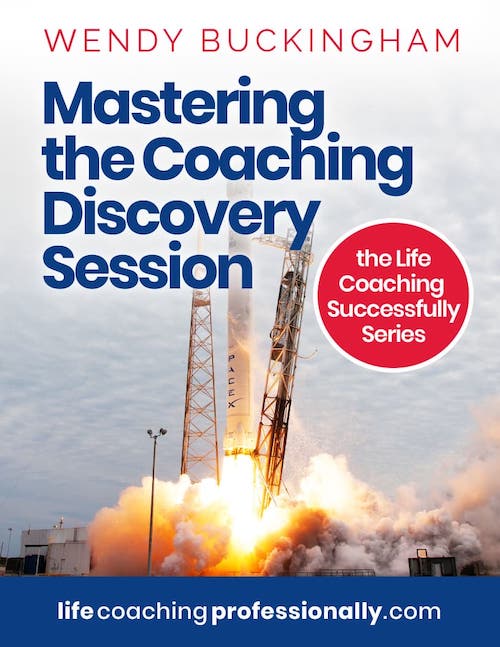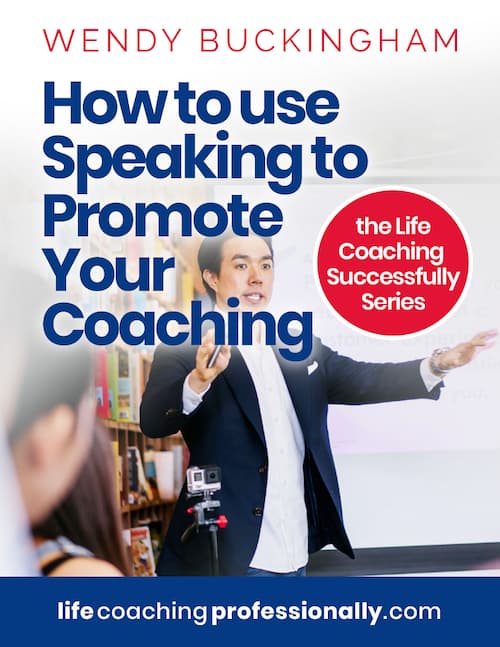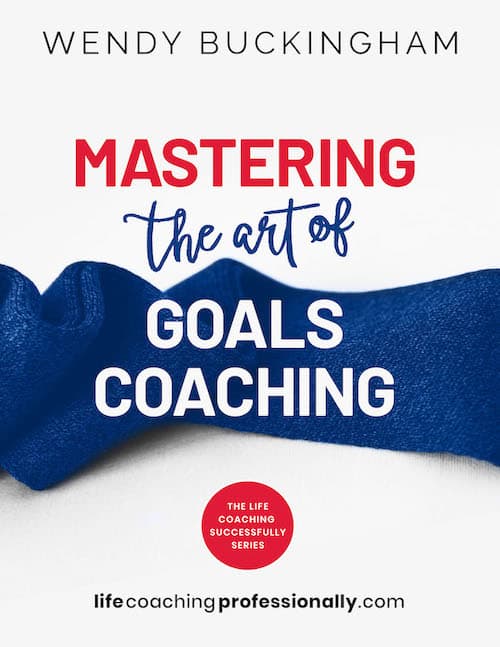- Life Coaching
- Marketing
- Networking
How Can You Network Effectively in Person as a Coach?
Page Summary
This page will give you lots of information on where to network in person and do's and don'ts on how to network effectively. You'll learn how to build strong authentic relationships with colleagues, peers and potential life coaching clients.
Quick Links
Why Networking In Person is Important?
With the Covid pandemic there were restrictions on group gatherings. Making contact online became the norm with Zoom or Skype. But there really there is no substitute for, when it is possible, having that physical personal connection.
You actually get to meet and check out for authenticity the people who may be able help and encourage you as well as connecting with potential clients and creating successful alliances for referrals.

Rather than spending all your time on the computer connecting, posting and commenting in various groups, you get to get out and enjoy a real, convivial get together.
You can have great conversations and more often than not listen to an interesting presentation as part of the event.
Networking function, such as a breakfast, lunch or evening meetings, whilst not being free, as on social media platforms, may even include finger food or a meal and a glass of wine!
However, finding the best in person networking groups to join to promote your life coaching can be quite a challenge. Here's how I suggest you go about it.
How Do You Find the Right Networking Groups to Join?
It's important in learning how to network to find networks that are going to be good value for your budget. Some business networks, and even community groups have a membership fee and/or an attendance cost so take your time before commiting. You could try Googling "Business Networks" in your area to see your options.
There are two important tips below the video to help you get it right.
Who has my ideal clients?
I'd suggest that you look for associations or networks to join that cater for your particular coaching focus or niche. For instance, if you have financial background, you may find your ideal clients if you network in an group, association or environment that caters for accountants, bookkeepers or bankers.
You won’t have so much competition and can
easily establish a rapport with potential clients because you know the industry.
Having said that, if your specialty is in a personal coaching niche such as, communication, relationships, confidence, etc., there will be people in all industries who will be open to being coached by you to help them move forward.
Some branches of business networking groups such as BNI (Business Networking International) limit members to one or two from each profession which can give you more scope for getting clients and referrals. So this is something worth taking into consideration before joining.
How many times should you attend a group before you join?
If possible, trial a networking group with three visits before you actually join and pay any membership fees. Unless you immediately feel confident, one visit is not usually enough to really know if joining will be of benefit. Three visits gives you a better opportunity to see if you like the environment and if the members are in the sphere of your coaching niche and/or ideal clients.
Many generic business networking organisations, (i.e. they don’t arise out of a particular profession or interest group) can be over-stuffed with members who are consultants and life and business coaches all looking to make connections with potential clients.
I’ve had the experience where every other person I speak to, or
is at my table, is in the coaching or allied profession. So whilst
you may enjoy the event and the conversations, be aware the client opportunities may be limited. However there may be opportunities to form referral collaborations.
What are the Do's and Don'ts for Networking in Person?
I've prepared this list of powerful tips on how to network effectively when physically present with others. I learned many of these from my long time friend and networking guru Robyn Henderson who has written several books on the subject. Other tips come from my own experiences and observations.
So DO....
- Invest in some business cards: Or something like a postcard or bookmark that identifies who you are and what type of coaching you offer. Make your business card networking friendly by ensuring there is space and a suitable writing surface for your notes. Check out my Creative Business Card Ideas
I suggest making notes as you go as there is nothing worse than getting home and not being able to remember who the person on the card you have collected was and/or what you talked about. - Follow-up and keep in contact: Follow up on any meaningful conversations with a card or email. Mention something you remember about them and/or their challenges (from what you have written on the back of their card) or about the event or the speaker. You don't have to sell or refer unless it is appropriate. Just include something like "I really enjoyed our conversation and look forward to connecting again."
- Learn to be a host: It may not be obvious but this is a really important how to network tip. Take it on yourself to introduce people you know to each other. If you have a really shy colleague, offer to take him or her along and introduce them to people - and not only people who may be prospective clients. This will mark you as a true and valuable networker.
- Establish rapport: When you meet somebody new, you can start a conversation by fining something to genuinely compliment or connect with them on (such as a great tie or scarf), or share something that you may have in common. You can even ask"do you come here often?😊.
- Listen more than you talk! This is how you find out about other people and how you may be able to help them and establish a future relationship.
- Be brief and concise: Practice describing what you do concisely in just a couple of sentences. Emphasise the benefits your coaching offers, rather than the fact you are a coach. Lean how to craft an effective "Elevator Speech". That is a short but engaging description of what you do that could be shared in an elevator between floors. For more on that see the link at the bottom of this page.
- Dress appropriately for the occasion: Some networking functions are very formal - dig out your corporate suit - and others you can get away with jeans. If in doubt, check with the host. Remember first impressions are important.
- If networking scares you: Find a networking “buddy” to attend events with but don't stick with them the whole time! Remember you are there to meet new people so make sure you both circulate and get to know people.
- Give without expectation: It is a real buzz to be able to help someone find where they can get what they need or want, even if it has nothing to do with coaching – and sooner or later, “what goes around, comes around”.
- Acknowledge graciously: If you enjoyed the event and/or the presentation, send a short note of appreciation to the host and/or the presenter. It will be valued and they will remember who you are if the opportunity for a referral arises.
But DON'T ...
Some of the best business networking behaviours tips and tricks are what NOT to do if you want to make good connections with people so they will want to talk to you again.
- Be a spider networker: This is not how to network effectively. Don't pounce on people and tie them up in a web of conversation that is all about you and what you do, rather than being interested in who they are and what they do.
- Get stuck with one person: Learn to handle networking spiders as well as elegantly get out of conversation with someone who wants to stick with you.
Saying there is someone across the room you just have to speak to or you just have to go the the bathroom are possible strategies. You could also try introducing them to someone else and then moving on yourself. - Only talk with people you know: Whilst it is great to catch up with your friends for a quick chat – the idea is to meet new people and establish new relationships or reinforce a connection you made at the last meeting. This is a business growing as well as a social occasions.
- Immediately provide too much detail about what your services: Unless someone indicates a real interest, you will bore them silly and they will want to escape. Keep telling what you do brief and concise and express it in a way that invites questions. You'll find more on this in the related pages on Elevator Speeches.
- Make absolute judgments about people from first impressions:
How a person is dressed, the way they speak and so on can often lead to a lot of misplaced assumptions that they are not worth talking to and moving on too soon. Jump to conclusions and you could miss out on a valuable connection. - Spread yourself too thinly: Better to attend a couple of networks regularly and become known and trusted, than be an occasional face at many. It's about creating credibility and ongoing relationships.
- Hold aside conversations during any presentation: Apart from being rude to the speaker, it’s distracting for others and won’t earn you any brownie points with possible contacts in the audience.
- Book but not attend without letting your host know: This can be really annoying for the host for catering purposes, especially if there is a waiting list to attend. Yes I know you've paid but that's not the point!
If there was absolutely no way you could let your host know because of a last minute emergency, send a short note of apology or ring at your earliest opportunity. - No follow up: Promise somebody you meet that you will follow up on a contact or referral and then not do it. Try to do all your follows up on the same day as the meeting or at least within 48 hours.
- Complain loudly: When attending coaching networking events, don't loudly carry on about not liking the food, the speaker, the venue, parking etc. If there is anything that does not meet your expectations complain quietly to the host or, better still, send an email after the event acknowledging was was good but expressing your concerns. Your networking goal is to build long term positive relationships, not try to prove a point!
In conclusion, networking to promote your coaching should be an enjoyable experience as well as a great marketing strategy that builds your profile, gives you credibility as a coach and attracts clients.
And, of course, these days we also have to create relationships and meet potential clients online. My page Social Media Networking for Coaches, will guide you to find the best forums to post on and how to make great connections. And if you are looking to outsource your social media activities, there is also valuable information on how to do this effectively and avoid the traps.
More on Becoming a Great Networker
In addition to the Do's and Don'ts I've given you above you may find The World's Worst Networker by Timothy M Houston, a great and often amusing read to hone your networking skills.
It's full of actual experiences of what not to do when networking which really bring home the Don'ts as well as emphasing the Do's.
Houston has also written a couple of books on getting referrals and converting leads which which also be useful in your networking.
More help to grow your coaching skills and promote yourself
I have written a wide range of informative books (all from my own 25+ years experience) that will help you to authentically attract new quality clients, increase your coaching skills and promote your coaching services.







